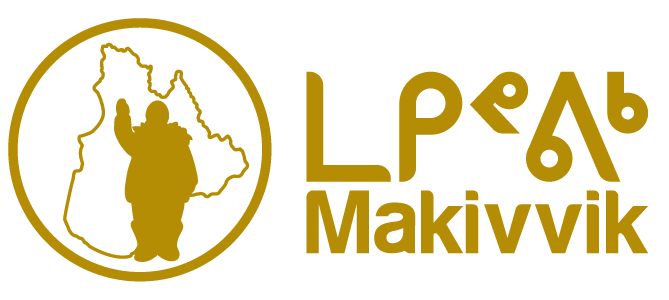Usually thought of as forest dwellers, why are these rodents moving north and what does it mean for the region?
By Mikhaela Neelin and Mathilde Lapointe St-Pierre, in collaboration with community members
Arctic landscapes are being transformed by climate change, including through the increased appearance of new wildlife species. Beavers are well known for the dams that they create, which dramatically alter ecosystems by converting rivers and streams into wetlands. They are found throughout nearly all North American forests and have only recently begun expanding their distribution above the treeline. Although the impacts of beavers in the south are well studied, their increased presence in the tundra causes concerns because there are many unknowns about their effect on rivers, fish, and harvested species.
In areas such as Alaska and the Northwest Territories, beavers have been observed to speed up permafrost melt and decrease the quality of freshwater for drinking. Beavers are also known to improve habitat for species such as salmon and moose, which are already beginning to expand northwards themselves. It is important to study beaver expansion in Nunavik to learn more about these interactions, especially to understand their impacts on harvested species and on human health.
Context: what’s going on in Nunavik?
Nunavimmiut have been observing more beavers over the years, living farther north than ever before. Although some hunters in Kuujjuaq and Kuujjuarapik have been trapping beavers for many decades, beavers have only been spotted near communities such as Tasiujaq, Aupaluk, and even Kangirsuk more recently. “The elders say they didn’t used to have beavers here, a long time ago. I guess they’re coming North from South,” explained Willie Cain Jr. of Tasiujaq. “We’re not used to beaver trapping. That’s why they’re starting to increase.”

Recently, the Tasiujaq Nanuapiit Board (the Hunting Fishing Trapping Association) identified beavers as a concern for Arctic char migration to lakes and have been coordinating projects to clear dams, trap beavers, and monitor beaver activity. Mikhaela Neelin was a researcher at McGill University before she began working for the Nunavik Hunting Fishing Trapping Association, and she studied the expansion of beavers along Ungava Bay communities by incorporating both Inuit knowledge and scientific approaches. She worked with Makivvik and the Tasiujaq Nanuapiit Board to find out where beavers are, why they are there, and what their impacts are.
The fact that beavers can be found in the tundra comes as a surprise to many people, since beavers usually fell trees for food or for building their dams and lodges. Researchers believe that the main cause of beaver populations expanding north is “shrubification” in the tundra, which is the increase in size of shrubs such as willow due to climate change. Interviews with Nunavimmiut revealed other possible easons for beaver expansion, including the decreased harvesting of beavers when Cree and Naskapi trappers were relocated to villages, and hydroelectric dam construction farther south that forced beavers to find new streams to inhabit. Some harvesters involved in this project noted observations of beavers swimming along Ungava Bay, in saltwater. Although this is uncommon for beavers, which are freshwater animals, the marine coast might offer them an easy travel route to reach new areas quickly.

These projects have been uncovering more information about beavers in Nunavik and discussing potential management strategies, but there are still lots of questions to answer. Other Inuit and First Nations groups across the Arctic have similar concerns, so collaborations are being sparked across the circumpolar North to share research results and management ideas with each other.
Future: what are the next steps?
Use of satellite imagery for rapid identification of beaver dams is something that is now being explored by a team of researchers including Oumer Ahmed (Makivvik), Mathilde Lapointe St-Pierre (Nunavik Research Centre), Mikhaela Neelin (Nunavik Hunting Fishing Trapping Association), and Patricia Sung (McGill University). The information from this rapid detection could direct community management action when and where it’s needed the most. A few local Hunting Fishing Trapping Associations have also been interested in monitoring water quality of beaver-dammed streams, which will be incorporated into this project. Depending on community interest, there is also the possibility of doing further research on direct impacts of dams on Arctic char abundance and spawning, as well as a study on the shrub growth that helps to explain beaver distribution in the region. There will also be opportunities for follow-up interviews about observations of beavers and interactions with Arctic char, which will build on conversations that happened in 2018 on this topic.

Observations and knowledge shared by Nunavimmiut, as well as helicopter surveys and research approaches, are offering a clearer understanding of this phenomenon so that communities can make informed management decisions.
If you would like to know more, get involved, share observations, or request assistance with beaver management, you can email Mikhaela Neelin at MNeelin@rnuk.ca or Mathilde Lapointe St-Pierre at MLapointeSt-Pierre@makivik.org.




